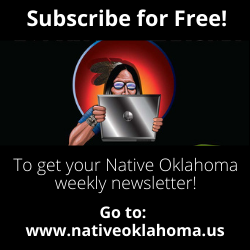

FAQ: Answers to your questions about driving with tribal tags in Oklahoma
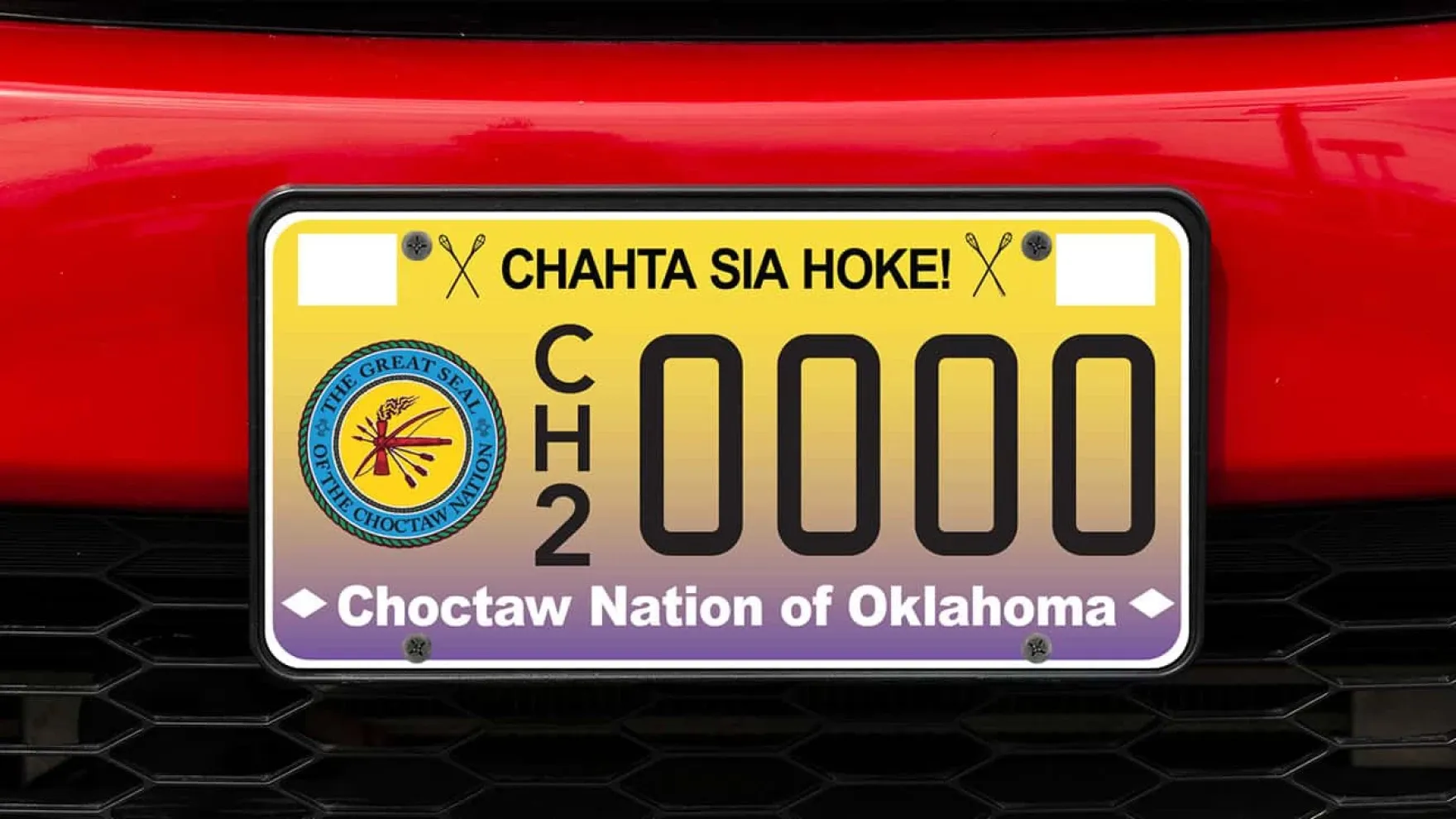
KOSU | By Allison Herrera, Robby Korth
For decades, no matter where drivers with tribal tags lived in Oklahoma, they’ve been good to register their vehicle with their tribal nation.
This was following a 1993 Supreme Court Ruling in Oklahoma Tax Commission v. Sac and Fox Nation.
The Supreme Court determined that state taxes levied upon tribal citizens who live and work within their reservation and motor vehicle registration fees, "on tribal members who live and garage their cars principally on tribal land and register those cars with the tribal nation" are not allowed.
But that appears to be changing.
As the Oklahoma Highway Patrol begins ticketing drivers with tribal tags who live outside their tribal nation’s boundaries, there are a lot of questions on the practice.
KOSU is looking to answer some frequently asked questions about tickets for tribal tags. We talked with attorney Joe Halloran.
He works with Jacobson Law Group, a national Indian law firm office out of Saint Paul, Minnesota. He also serves as special counsel for many tribal nations in Oklahoma, including the Miami Tribe of Oklahoma.
Can I get pulled over for driving with a tribal tag?
No.
You cannot be pulled over randomly for having a tribal tag. Officers must have to have a basis to initiate the stop, like speeding or reckless driving. If you are pulled over for an infraction and your vehicle is registered at your address and that address is on tribal land, you are free from paying this ticket.
"A tribal tag on a state highway is not the basis for a stop. That it's my understanding from the state that the stop would have to be warranted under some other circumstance, be it a tail light out or some other speeding or some other infraction, at which point if a stop is made and probable cause for that other reason that the state is now taking the position that it will determine whether a tribal tag is, in their view, appropriate meaning that it's issued to a tribal member whose vehicle is garaged on the reservation of the origin of the tag," Halloran said.
In other words, you cannot be pulled over for driving on a public road.
What can I do if I get a ticket for not paying my property taxes to the state of Oklahoma for having a tribal tag?
The citation for tribal registration infraction is a civil matter. And it is a citation that may result in a fine.
“I think you're going to see what tribal members do with respect to these tags, and that is to litigate whether the state is properly enforcing the tribal tag against tribal members who are displaying fully paid up and valid tribal license tags,” Halloran told KOSU. “And that would be in the context of the same kind of a context in which you would challenge a speeding ticket or driving without a seatbelt or that kind of a civil infraction.”
Drivers from three tribal nations will also not get a ticket based on their compacts with the state. Those would be the Cherokee, Choctaw and Chickasaw Nations.
So does that mean someone challenge this ticket?
Yes. And it’s likely that a ticket will be challenged.
"I hope that you won't have to, because it's my view that the state's position in this regard was, I don't think, was well-founded for a couple of reasons," Halloran said. "The position was taken, essentially, a reversal of some nearly 30 years of practice by the state without so much as a phone call or any effort to consult and discuss the issue with any of the tribes in the state of Oklahoma."
“I just think that's bad governance.”
Could tribes flip this precedent? If the Oklahoma government demands that tribal citizens pay taxes to the state on their vehicle if it's garaged outside tribal boundaries, could tribes require people who live within their boundaries/service area (including non-citizens) to pay vehicle taxes to the tribe?
“The simple answer is yes,” Halloran said.
But the reality is far more complicated. There would be political blowback and consequences for tribal nations and the state if something like this were to happen.
“It’s the kind of back and forth that I think is better done by tribal consultation with the state to vet these matters rather than a tit-for-tat enforcement by each of the sovereigns,” Halloran said.
If I've had a tribal tag for 10 years, can the state charge me back taxes for all of those years?
It's unclear.
"I know that the manner in which tag citations typically come up is for either, a failure to secure a state tag for, typically it is for the current year," Halloran said.
However, nothing about what’s happening is typical. So, it’s difficult to say what the state might do.
Is it driving a vehicle with a tribal tag outside tribal boundaries, or just having the vehicle registered to an address that's outside the boundaries?
No, that is not the infraction that's being cited. The infraction that is being cited by the state is where an officer stops a driver for an unrelated matter and determines that their tribal tag, that their resident, their registered residence is not within the sovereign territory of their tribe. That's when a citation is issued.
"So simply driving down the highway with a tribal tag when you're in Tulsa is not a sustainable offense at the time," Halloran said. "It would be virtually impossible for an officer without probable cause on another matter to determine whether the driver in front of him lives in Tulsa or lives in Miami, Oklahoma."
"Friends of mine in the Indian community know what it means to drive while Indian. And that is a risk that tribal people who have displayed tribal plates for decades, regardless of the state, can testify to that."
Why has this not been resolved? The Supreme Court's decision came out in 1993? Why haven't tribal nations and the Department of Public Safety worked to resolve this issue?
The simple answer is: they were supposed to. In 2011, the legislature passed a state law known as the Motor Vehicle Ownership and Registration Information - Intergovernmental Cooperative Agreement.
That law directed the commissioner of public safety to consult and develop a protocol for dealing with this very issue.
“But the problem is, that no outreach ever happened,” Halloran said. “Tribes continued to conduct themselves as they had for years. "So I think there's an infrastructure in place for the parties to meet and confer and consult on an appropriate protocol. I think the statutory authority is there."
The law states that, "In an effort to improve the public safety of all citizens of this state, a more uniform and expeditious method of obtaining ownership and registration information of all motor vehicles operating on the roads and highways of this state is required."
"The way the state didn't reach out to the tribes to develop the intergovernmental coordination,” Halloran said. “I can't tell you why that occurred. But I can say that simply changing a policy without any consultation was not the appropriate step. I don't think it was in step envisioned by statute, and it's not a step that results in meaningful inter-sovereign dialogue."
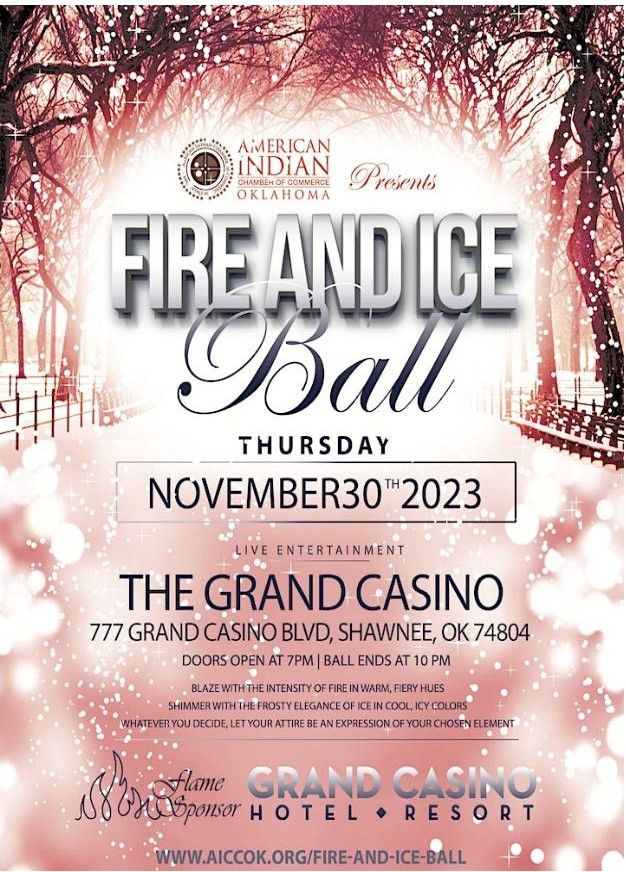
Choctaw Nation celebrates Native American Heritage Month
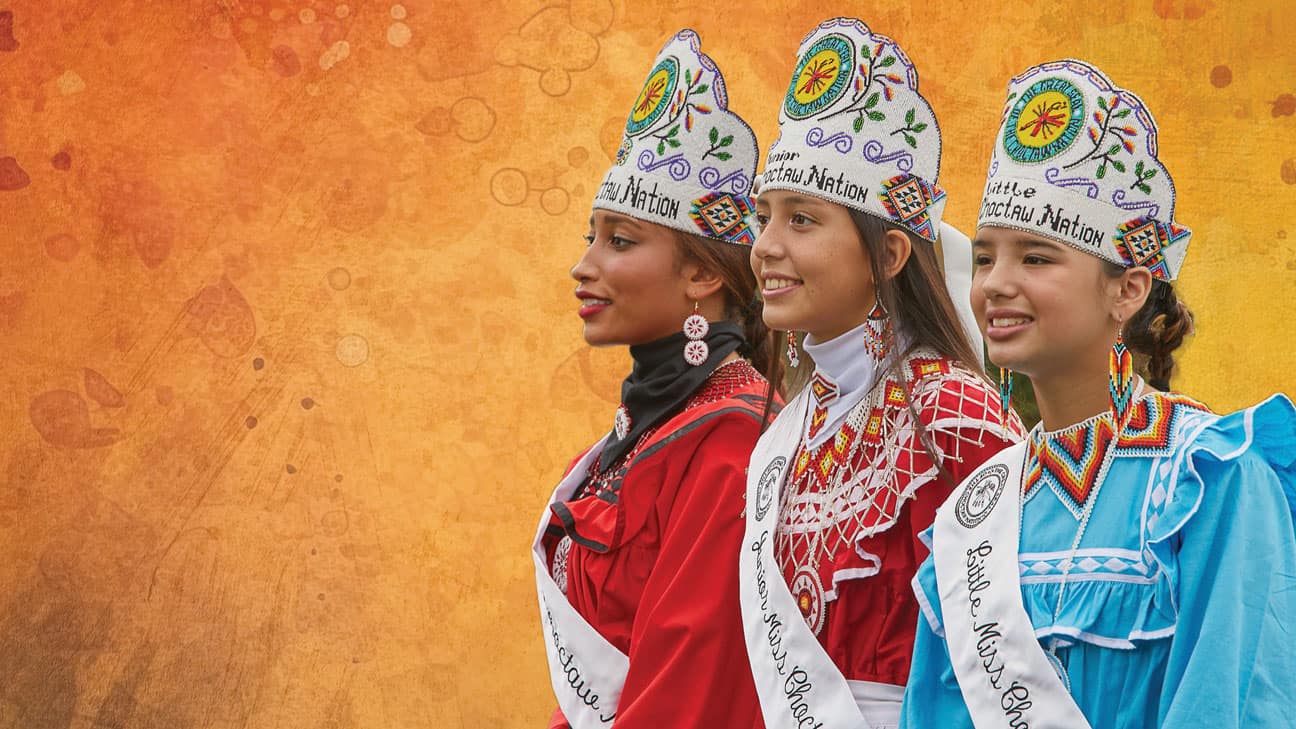
In the U.S., November is recognized as Native American Heritage Month. The month is a time to celebrate rich and diverse cultures, traditions and histories and acknowledge Indigenous people’s essential contributions to this country.
Native American Heritage Month is also an opportune time to educate the general public about tribes, to raise general awareness about the unique challenges Indigenous people have faced both historically and in the present, and how tribal citizens have worked to conquer these challenges.
This month, the Biskinik has chosen to highlight just a few of the many Choctaw tribal members making a difference in their communities and representing the Choctaw Nation as they accomplish their goals and dreams. If you or someone you know is a Choctaw tribal member doing great things, feel free to share their story with us through email at biskinik@choctawnation.com.
Below is a list of the remaining events the Choctaw Nation is hosting this November.
Attending one of these events is a great opportunity to celebrate Native American Heritage Month and learn more about Choctaw Culture.
For more information and to register for this year’s Native November events.
November 13 – 17
Rock Your Mocs
Wear your moccasins during Rock Your Mocs week, take a photo, create a video or story, add the hashtag #RockYourMocs and upload it to social media for the world to see and enjoy.
November 14
Living Happier and Healthier Lives
Tune in on November 14 from 1—2 p.m. to hear Dr. Karina Walters explain how traditional Choctaw ways and teachings can have a positive impact on our emotional, mental, and spiritual health. Register now
November 16
Native Representation in Entertainment
Native Americans have made large strides in improving the way they are represented in film, television, literature and other areas, but it wasn’t always easy to navigate the world of entertainment. In this online session, Josiah Jones tells his story of breaking into the film industry and encourages others to follow their dreams. Join this WebEx event on November 16 at 1 p.m. Register now
November 17
Hymns With District 9 and Social Dancing
Visit the Choctaw Tribal Head Quarters Amphitheatre November 17 for a special demonstration of Choctaw culture. From 9:30 a.m. to 10 a.m., listen to the District 9 Seniors sing Choctaw Hymns. From 10 a.m. to 11 a.m., watch as Choctaw Cultural Outreach demonstrates traditional Choctaw social dances.
Movies on the Patio: Moana
Join us November 17 at the Choctaw Cultural Center as we host Movies on the Patio from 7 p.m. to 9 p.m. Each month, the CCC shows themed movies based around the seasons and holidays. Bring a friend, family and a chair! Snacks will be available to purchase at this event. Please, no outside food and beverages.
November 18
Lukchuk Ke Pila
Help prepare the Center’s chukkas for the coming winter on November 18 from 1:00 p.m. to 4 p.m. With your help, the Choctaw Cultural Center will create the clay/mud mixture and apply the mud to the bare chukka. This is similar to the winter home preparation of our Choctaw ancestors.
November 20
Storytelling: Traditional Deer Hunting
The most important food animal for our Choctaw ancestors was the issi (white-tailed deer). Join us via Webex on November 20, as Ryan Spring shares a story of traditional Choctaw deer hunting. Register now
November 21
The Ribbon Skirt: Symbol of Identity, Resilience, and Survival
Ribbon skirts come in a wide variety of styles and colors, and Native women from all tribes wear them proudly to honor their cultures. Join Isabella Aiukli Cornell on November 21, 2023, at 1:00 p.m. for this online presentation on the origins of the ribbon skirt and what they mean today. Register now
November 23-24
Choctaw Nation facilities closed in observance Thanksgiving.
November 28
Choctaw Heritage Cultivars
Native plants are critical to the ecosystem of Choctaw Country, and they bring a wide variety of other benefits. Join the Historic Preservation Department November 28 at 1:00 p.m. for an online session discussing how to use culturally significant plants to improve health and quality of life. Register now
November 30
Tribal Sovereignty: What It is and Why We Fight for It
The Choctaw Nation’s Government Relations team will hold an online session discussing the importance of tribal sovereignty in today’s world and how we can protect it. Join us online November 30 from 1—2 p.m. to participate. Register now
Throughout the Month
Choctaw Cultural Center Coloring Sheets
Every Wednesday during the month of November, the Choctaw Nation will be releasing a new Native November coloring sheet, highlighting a part of Choctaw culture.
Wear Your Regalia Day
Every Wednesday during Native American Heritage Month will be Wear Your Regalia Day. Show your Choctaw pride in style.
Thanksgiving Meals
Throughout the Month of November, join your local Choctaw Community Center for their annual Thanksgiving Meals. Enjoy a delicious meal and fun and fellowship with fellow Choctaws in your community.
All events, dates and times are subject to change. Stay up-to-date by following the Choctaw Nation and Choctaw Cultural Center social media or by visiting their websites.
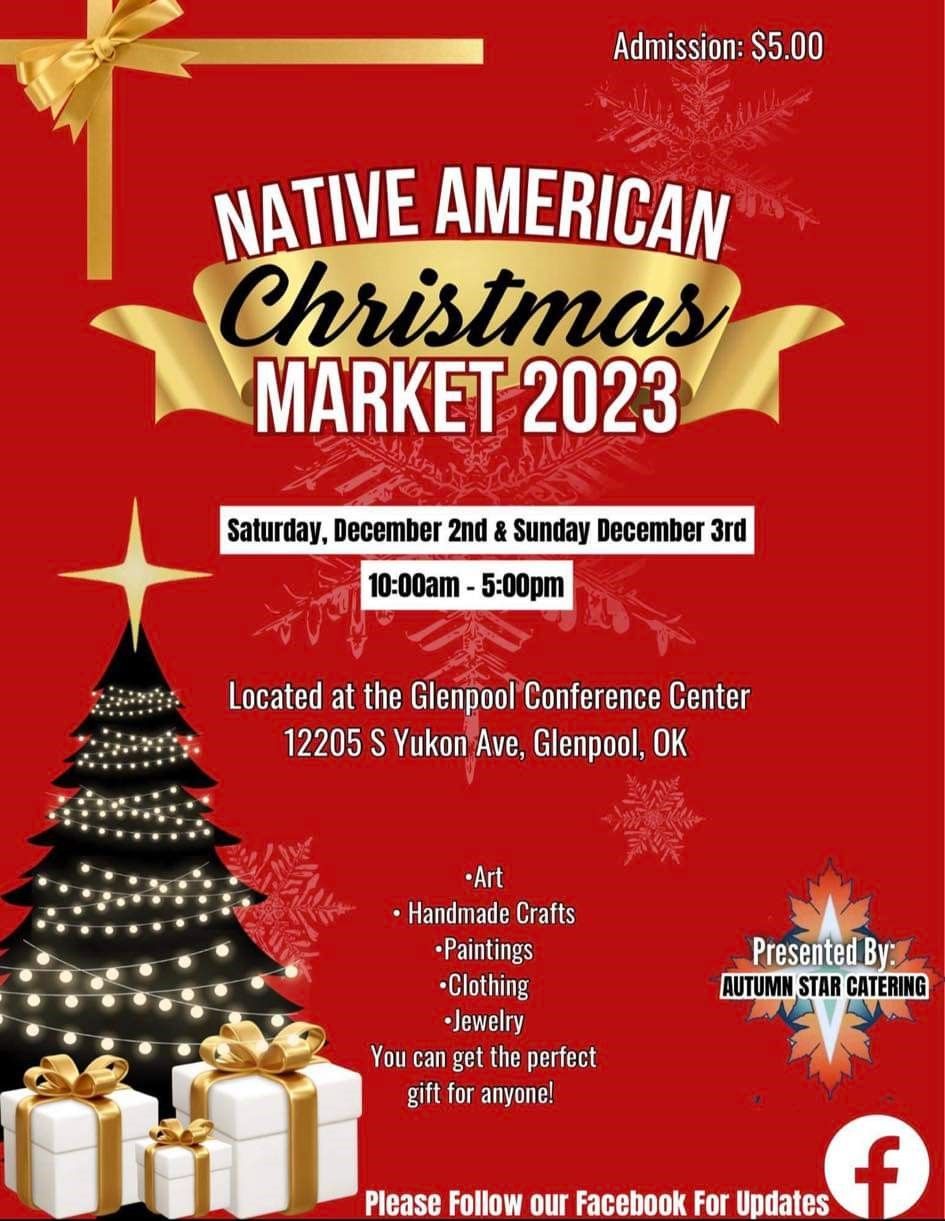
Osage Nation Police Department Hosts Training to Increase Awareness of Human Trafficking
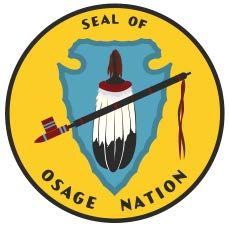
OSAGE RESERVATION, OKLA. – The Osage Nation Police Department (ONPD) hosted a training class at the Osage Casino in Pawhuska, Oklahoma, to educate local law enforcement agencies that serve the Osage Nation reservation and bordering communities.
As the community of Pawhuska celebrates the new Osage Casino recently being added, the ONPD prepares to prevent and protect the Osage Nation and surrounding factions on the Osage Nation reservation from the risk of Human Trafficking.
According to Kennedy, “ONPD Chief and Public Safety Cabinet Secretary Nick Williams holds a vision for the future and knows that with having hotels attached to our casinos, this danger could be an issue.” With this concern, Williams directed Lieutenant Kennedy to help all law enforcement agencies and staff to become as well-versed in prevention and protection as possible.
“We are excited to work with the Osage Casino staff to make our community safer for families to enjoy the establishments,” stated ONPD Lieutenant Michael Kennedy. “I collaborated with the United States Attorney General’s Office and the Tulsa Police Department, who graciously sent instructors to education our officers.”
The agencies that benefited from the training include the ONPD, ON Attorney General’s Office, Pawhuska Police Department, Skiatook Police Department, Hominy Police Department, Muscogee Creek Nation Lighthorse, Quapaw Marshals, Catoosa Police Department, Wagoner County Sheriff’s Office, Oklahoma Highway Patrol, Osage County Sheriff’s Office, Tulsa County Sheriff’s Office, Grand River Dam Authority, Washington County Sheriff’s Office, and the State of Oklahoma Department of Corrections.
The City of Pawhuska Police Chief, Lori Hennessey, commented “the training itself was very informational and benefited us all.”
For more information about the ONPD, please visit https://www.osagenation-nsn.gov/services/law-enforcement-department.

WE SERVED: Cherokee veteran who served during World War II honored for his service
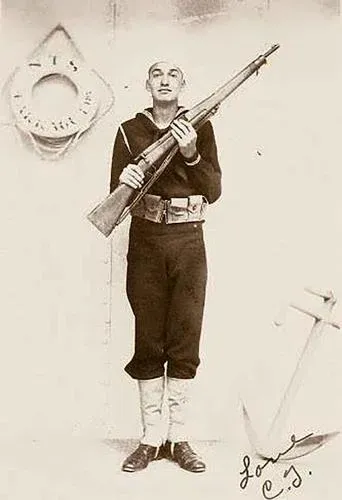
PALO ALTO, Calif. – World War II veteran and Cherokee Nation citizen Charles T. Scott, 99, was honored Nov. 3 with a “Quilt of Valor” at the monthly meeting of the American Legion Post 375 based in Palo Alto, California.
Scott, of Palo Alto, was honored for his 21 years of service in the U.S. Navy and Coast Guard. The quilt, created by the Blue Star Moms of South Bay, was presented by their president, Donna Zolezzi.
“I’m proud to be a Cherokee warrior. I never thought I’d come back from the war, and I’m still here. I’ve had a wonderful life,” Scott said.
Scott, who grew up in Proctor near Tyner Creek in Adair County, was attending Haskell Indian Boarding School in Lawrence, Kansas, in 1941. After the U.S. Naval base at Pearl Harbor in Hawaii was attacked in December 1941, he tried to enlist in the Navy, but the recruiting officer was warned by one of his teachers that he was too young to enlist, and he was sent back to school. When he graduated Haskell in 1943, he was drafted and served as a radioman on the USS Shad submarine and on the USS Bushnell submarine during the war.
Being 6 feet 3 inches Scott had to get a waiver to serve on the submarines because the maximum height for a sailor to serve on a submarine was 5 feet 8 inches To accommodate him, Scott said he had to sleep in the bunk above the torpedo bay so others wouldn’t bump into his feet hanging over the end of his bunk.
After the war, he re-enlisted in the Navy, serving aboard the USS Parche submarine before transferring into the U.S. Coast Guard. He served two tours of duty in Alaska as a radioman stationed in Ketchikan on the USCGC Citrus buoy tender and on Kodiak Island. As part of his second tour, he was chosen to help establish a secondary radio station for Coast Guard communications on Kodiak Island. While at that radio station, he was awarded two life-saving citations for detecting communications from sinking vessels and directing maritime rescues in the waters off Alaska.
Scott received the Cherokee Nation Medal of Patriotism in Tahlequah in 2010, and was flown to Washington, D.C., as part of a Cherokee Nation Warrior Flight in 2015. His experience was recorded by Osiyo television in a documentary entitled Revisiting History with Cherokee Warriors and in the first season of Voices of the Cherokee People, Episode 10.
At 11 a.m., Nov. 11, he was recognized for his service as a Cherokee warrior and World War II veteran at the Palo Alto Veteran Affairs Medical Center, Building 101. This event was co-sponsored by the City of Palo Alto, Stanford University, American Legion Post 375, the Department of Veteran Affairs and the California Council of the Military Officers Association of America.
